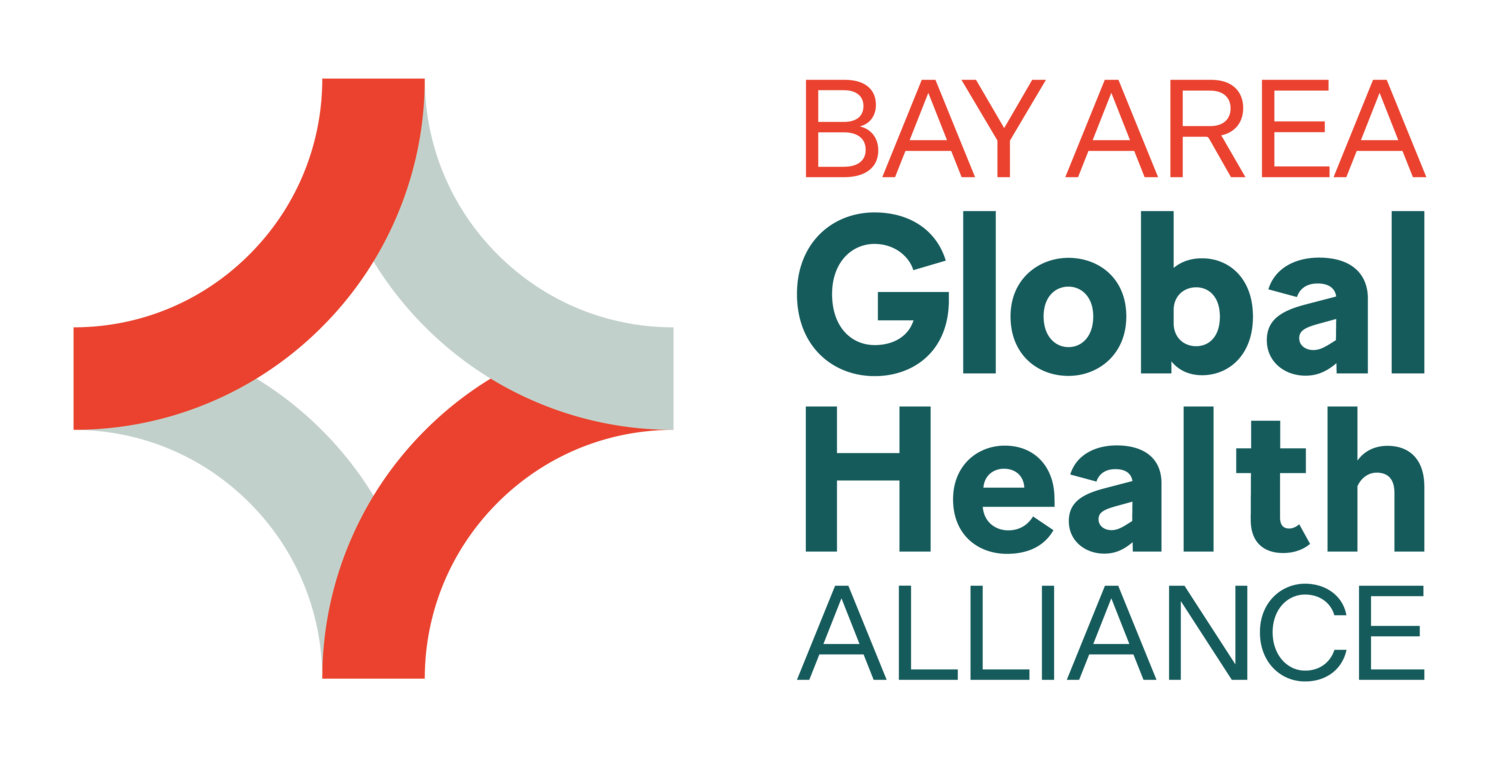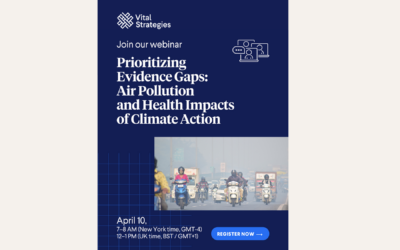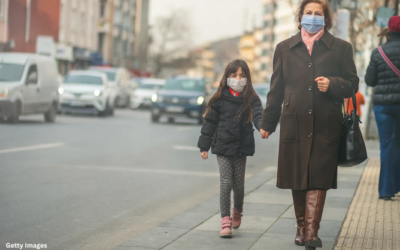Join Vital Strategies for a webinar launching its new report, Prioritizing Evidence Gaps: Air Pollution and Health Impacts of Climate Action. Current evidence suggests climate actions will result in larger health gains via air pollution reductions than via CO2 and temperature reductions. At the same time, more research is needed to precisely assess the effectiveness of clean air and climate actions being taken, considering how actions reduce specific health-damaging source emissions. Vital Strategies and Wellcome Trust conducted a rapid scoping activity to identify and prioritize gaps in the evidence base that may be limiting cities’ and countries’ abilities to demonstrate the health impacts of climate mitigation actions targeting combustion-source air pollution.
Search
Events
MEMBERS
- 19Labs
- AbbVie
- Accenture
- Africa Health Business
- AIfluence
- Airbnb
- Americares
- Ananya Health
- Antara International
- Baraka Impact Finance
- Boston Consulting Group
- CCBRT
- Cepheid
- Chevron
- Clinton Global Initiative
- Connective Impact
- Consortium of Universities for Global Health
- Cross-Border Impact Ventures
- Ending Pandemics
- ETR
- Fistula Foundation
- Friends of Chidamoyo
- Friends of the Global Fight
- GAIA Global Health
- Gilead Sciences
- Global Environment & Technology Foundation
- Global Fund for Women
- Global Health Corps
- Global Health Council
- Global Health Technologies Coalition
- Global Impact Advisors
- Global Strategies
- HealthAI
- Hesperian Health Guides
- HOPO Therapeutics
- Ideo.org
- Ipas
- John Snow, Inc.
- Kainomyx
- Kapnek Trust USA
- Kupona Foundation
- L.E.K. Consulting
- LivingGoods
- Mastercard
- Maya Health Alliance
- Medicines360
- MedShare
- Merck
- Meta
- Nivi
- North Carolina Global Health Alliance
- OmniVis
- OPHID
- PATH
- Pathfinder International
- Pendulum
- Pfizer
- Planetary Health Alliance
- Population Services International
- Public Health Institute
- Resonance
- ReSurge International
- Roche Diagnostics
- Sabin Vaccine Institute
- San Francisco Community Health Center
- Seed Global Health
- Simprints
- Stanford University
- — Stanford University Byers Center for Biodesign
- — Stanford University Center for Innovation in Global Health
- — Stanford University School of Medicine
- Street Business School
- Tiba Foundation
- UK Science & Innovation Network
- UNICEF
- University of California
- — UC Berkeley
- — UC Berkeley Center for Emerging and Neglected Diseases
- — UC Berkeley Haas School of Business
- — UC Berkeley School of Public Health
- — UC Davis
- — UC Davis Institute for Pandemic Intelligence
- — UC Global Health Institute
- — UCSF
- — UCSF Institute for Global Health Sciences
- UpSwell
- Viamo
- Vir Biotechnology
- Washington Global Health Alliance
- Watsi
- World Health Organization
- World Telehealth Initiative
- YLabs
- Zenysis
TOPICS
REGIONS
- Africa
- — Cameroon
- — Côte d’Ivoire
- — Ethiopia
- — Guinea
- — Kenya
- — Malawi
- — Mozambique
- — Niger
- — Rwanda
- —— Kigali
- Asia
- — Nepal
- — Pakistan
- — Bangladesh
- — Indonesia
- —— Bali
- — Israel
- Europe
- — Switzerland
- —— Geneva
- South America
- — Brazil
- North America
- — California
- —— Berkeley
- —— Los Angeles
- —— Sacramento
- —— San Francisco
- —— Stanford
- — New York
- —— New York City
- — North Carolina
- —— Durham
- — Washington
- —— Seattle
- — Washington D.C.
How air pollution is causing girls to get their first periods earlier
UC Berkeley Read More


